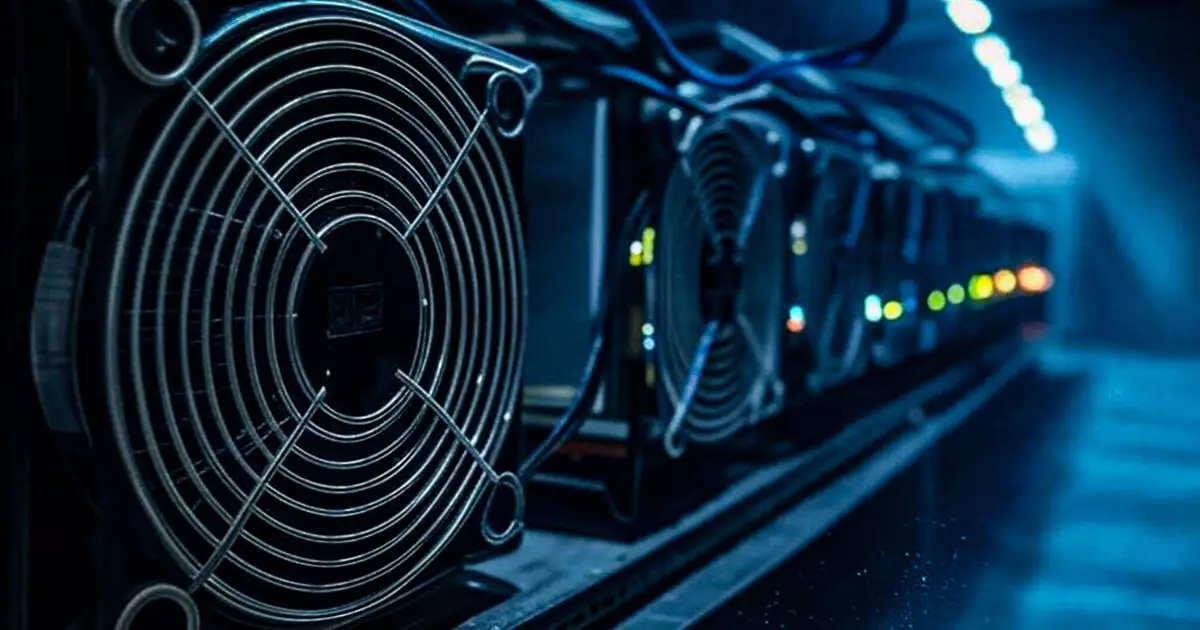The landscape for cryptocurrency miners in the United States has become increasingly fraught with challenges, particularly concerning the procurement of essential equipment. The dominance of Chinese manufacturers, particularly Bitmain, coupled with stringent customs regulations and escalating trade tensions, is creating significant obstacles for US-based mining operations. This situation is not only impacting the logistics of shipping ASIC miners but also raises concerns about the long-term sustainability of the industry.
Recent reports indicate that US Customs and Border Protection (CBP) have intensified inspections of equipment shipments from notable Chinese supplier Bitmain, which holds a commanding 90% share of the global market for Bitcoin mining hardware. As highlighted by industry leaders, these inspections are not merely procedural; they are thorough examinations that can halt shipments indefinitely. This is particularly alarming as the US Commerce Department has blacklisted specific Chinese firms—such as Xiamen Sophgo Technologies, which is affiliated with Bitmain—on the grounds of national security.
The additional scrutiny comes at a precarious time, given the deteriorating relations between the US and China. The recent enforcement of trade tariffs adds another layer of complexity, compounding the difficulties faced by miners who are reliant on imported ASIC machines. With President Donald Trump indicating new levy increases on Chinese imports, the financial viability of continuing operations with equipment sourced from China is increasingly questionable.
The fallout from these intensive customs checks is evident in the delay of shipments. For example, operations like the Oklahoma-based mining company that experienced significant setbacks due to slowdowns at customs illustrate just how vulnerable these businesses are. When equipment—like the Bitmain Antminer S21 and T21—faces public scrutiny at borders, it can result not simply in shipping delays, but also in substantial financial losses. Luxor Technology’s COO, Ethan Vera, noted that shipments associated with Bitmain have been especially vulnerable, revealing the extent of regulatory impact on the industry.
Taras Kulyk, CEO of a leading hardware brokerage, highlighted how imminent tariff increases could make acquiring new, advanced hardware outright prohibitive for many. In this climate, abundant projects risk stagnation and financial ruin, as waiting on shipment approval or facing transportation hurdles can halt construction entirely.
Statistics Reflecting Industry Impact
Current data from the CBP signals a dramatic decline in imports relevant to Bitcoin mining. There has been a staggering nearly 65% reduction in the gross weight of incoming mining rigs and accessories compared to the previous year. This statistic encapsulates not just a quantitative shift but hints at broader ramifications for US mining firms’ competitiveness in the global market and their operational viability.
Companies like New York-based Bit Digital are feeling the pinch, too; while a two-week delay might seem manageable at first glance, it can significantly impact overall operational productivity. This situation draws attention to the fragility of the supply chain underpinning the mining industry, susceptible to both geopolitical and regulatory shifts.
As regulatory pressures mount against Bitmain, emerging competitors pose a tangible threat. Firms like MicroBT and Auradine are gaining footing, reducing the stronghold previously enjoyed by Bitmain. Despite these setbacks, Bitmain is proactively addressing its logistical challenges by establishing a domestic production line in the US. This move may mitigate some import issues, allowing the production of the Antminer S21 Pro directly on American soil, promising improved efficiency and minimized operational disruptions.
The obstacles facing US cryptocurrency miners underscore a broader narrative about the interplay between technology, regulation, and global trade dynamics. With the tough regulatory climate and rising competition, the resilience of US miners will be tested in the coming months. Their ability to adapt to a shifting landscape—whether through local production or diversified supply chains—will ultimately determine their survival in an industry marked by rapid change and innovation. Without careful navigation of these intertwined challenges, the future of US-based crypto mining remains uncertain.


Leave a Reply